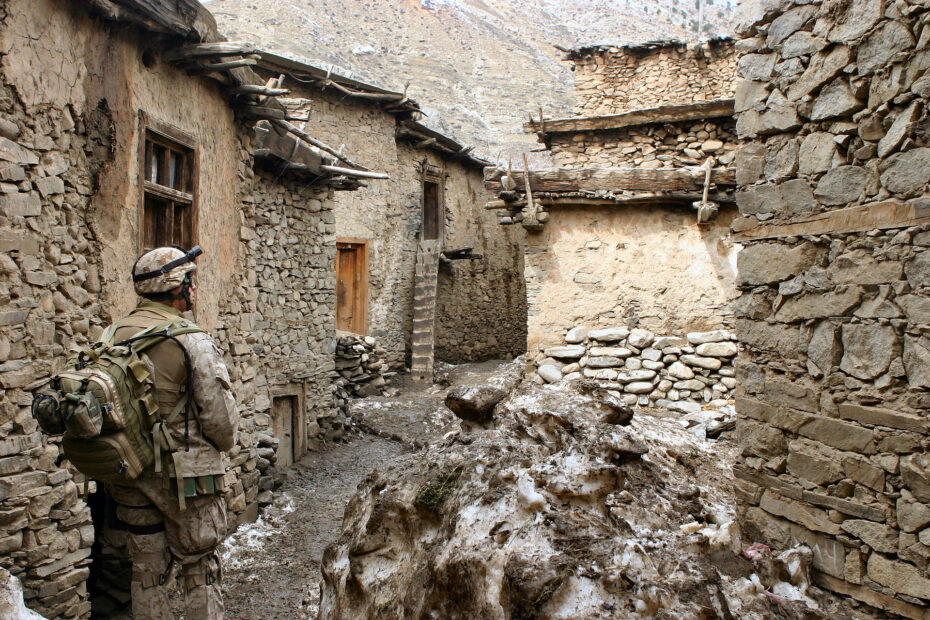After two decades, Afghanistan is unfree and continues to be beleaguered by the war’s deeply destabilising and inhumane outcomes. Although the coalition forces quickly deposed the Taliban in 2001, it rapidly bounced back and resisted the foreign occupation. In 2021, US President Joe Biden, justifying his decision to remove all support just before the Afghan national government’s final collapse, declared that a further military presence in Afghanistan ‘would not have made a difference’ in the face of a local resistance determined to liberate its country.
Read it in German here
Against this background, the US was forced to negotiate with the Taliban and end its failed expedition, which had caused incalculable human suffering and destruction. Afghani potentates and institutions such as the Afghan National Defence Security Forces (ANDSF) crumbled immediately after their imperial backer decided to cut and run.
In order to understand this failure, it is vital to read it from within Afghanistan’s cultural, historical and political context. In this essay, I emphasise the lack, or absence, of legitimacy as a central factor behind this failure. Lack of legitimacy has afflicted Afghanistan’s politics since the British conquest of the nineteenth century. The Afghani people viewed almost all exogenous impositions of foreign-backed rulers, including externally derived norms and values, as illegitimate, and have rejected and resisted them on this basis.
The nation-state of Afghanistan emerged from external interventions when that space became a site for British–Russian geopolitical rivalry in Central Asia in the nineteenth century. This imperial clamour for influence disturbed the culturally, ethnically and regionally grounded governance that had hitherto existed in the country. Until the British invasions (1839– 42 and 1878–80), the legitimacy of the ruler and political system were self-evident, and leadership was restricted to an elite that consisted of a narrow circle of relatives from the Durrani dynasty.
Cite as: Emile Badarin (2021) "Beyond the Geopolitical Lens: What happened in Afghanistan". Forum for International Cultural Relations, 14 November, Stuttgart, Germany.
